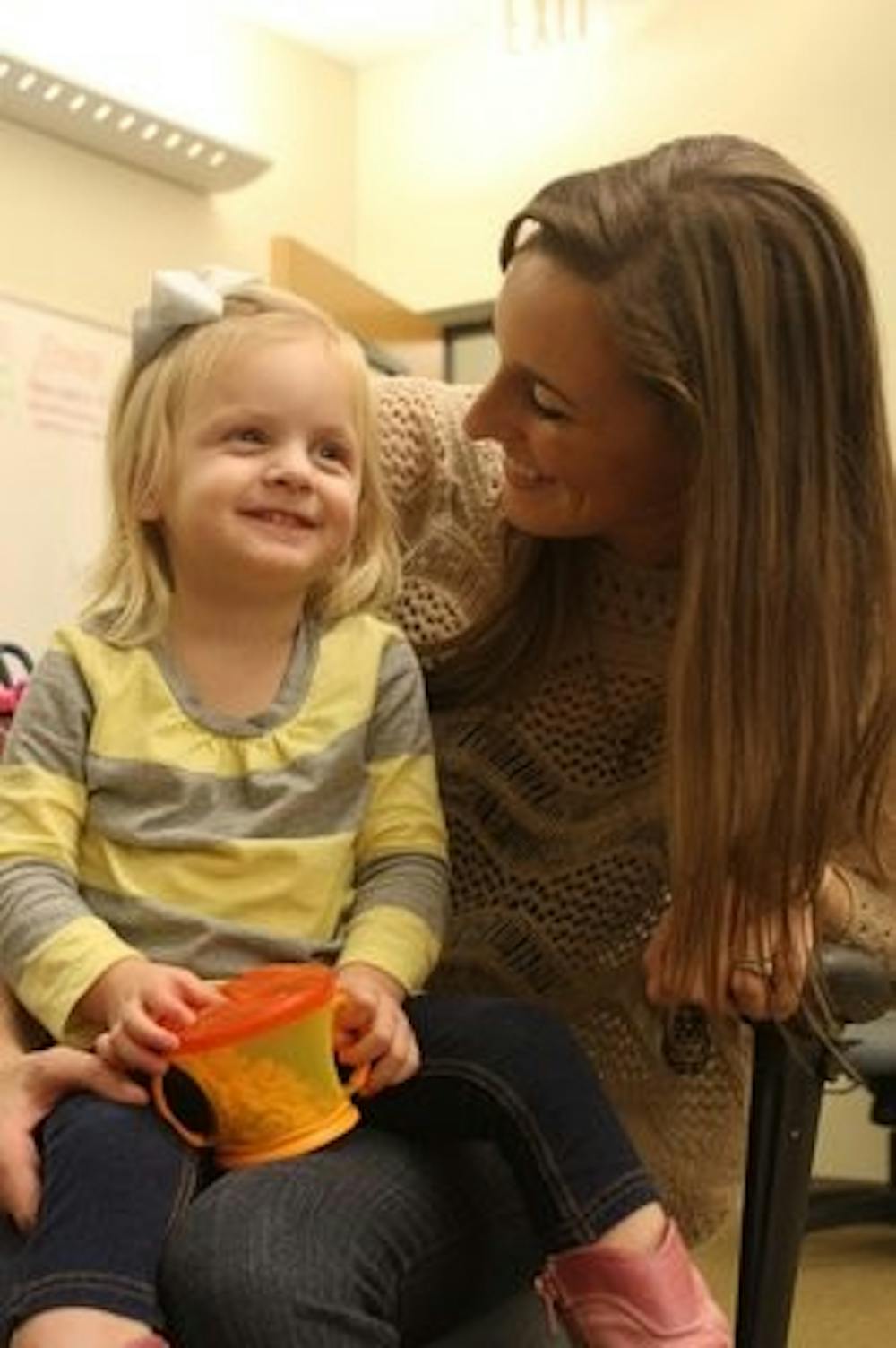Some students do not just have exams and attendance to worry about.For Lauren Litchfield, recent Auburn alumna and mother of a two-year-old daughter, and Grace Hall, senior in communications and mother of an 18-month-old daughter, they also have to worry about caring for a young child.
When Litchfield found out she was pregnant the May after her freshman year at Auburn, she immediately started planning around the pregnancy.
"I had to figure that out all on my own and just research," Litchfield said. "There's not much information that you can just find. I just had to pull from a bunch of different resources."
Litchfield was able to pull off graduating a semester early because of her academic advisor.
"She was a huge help, generally because she just cared and she was a mom, other advisors are not like that," Litchfield said.
Although Litchfield got lucky with her advisor, not all expecting students will have that experience because there is no set policy on students expecting a child, whether they are the mother or the father.
"I had one teacher that was going by university stuff and she was really strict and wouldn't doing anything for me," Hall said.
Hall is currently having troubles getting in the classes that she needs and the university is not making any exceptions for her situation.
"[The University] knows that I have a little girl that I am trying to get out of school for," Hall said. "I'm not sure if I'm going to get in those classes, and if that's the case then I'll have to stay another semester and pay for childcare three or four times a week for another semester."
Although both mothers excelled in their classes before and after their pregnancies, there was no guarantee when they came back, after taking a semester off, that their professors had to understand their situation.
"I'm actually in the process of trying to get some classes medically withdrawn because [the university] wasn't really accommodating with all of that," Hall said. "I'm a good student and I usually make good grades, so I'm trying to get the board to withdraw those classes, but I don't know if I'll get it or not."
Litchfield was on the luckier side when dealing with her teachers.
"When I went to go take one of my finals, one of my teachers said I needed to fail the final to get a B and that I deserve not to take the final," Litchfield said. "It was just one less thing for me to worry about especially since my daughter was in the hospital fighting for her life. The fact that one teacher said taking the final didn't matter and finishing her class is silly compared to a child that's two hours away that can't breathe was amazing."
The University at this time does not offer any policy or formal support groups for expecting students or students with children.
If any groups have formed they are all informal.
"People just sit and talk about any number of things like how you get your child to sleep at night," said Donna Sollie, assistant provost for Women's initiatives. "There is not an official advisor, but someone from the women's resource center will kind of help to facilitate."
Litchfield and Hall met through mutual friends, but it would have been better to have a formal support group on campus, Litchfield said.
"I love my friends," Litchfield said. "They were so supportive through the whole thing, but they still don't have a child, so they still don't get it. As much as they're supportive, at the end of the day they don't understand that I can't talk to them how I talk to Kathryn -- another student with a daughter -- and Grace."
Auburn also does not offer marital housing on campus, which could offer easier transportation opportunities to student parents.
"It would have been easier campus-wise," Litchfield said. "[My husband and I] had a situation where on every Tuesday and Thursday we had to literally pick [my daughter] up and go to his COSAM building, pick him up and drive around campus to then drop me off at class. I was late so many times."
Auburn's Women's Resource Center works with different organizations across campus, including the graduate student organization, GSO, which held a forum on concerns of graduate students.
The list of needs the GSO will try to address for pregnant graduate students or graduate students with children include, insurance policies for children and dependents, parking spots, traveling to school, day care, support groups, making the parent group official, Parent's Bill of Rights and resources.
Although some organizations are taking notice to students with these issues on campus, the undergraduate program at Auburn still has nothing to benefit its students with these issues.
"I hate to say to put rules in place, but there should be a policy," Litchfield said. "My situation's different because me and my husband were both students. We both had to get the classes. If the guy is supporting the child his schedule is just as important. If a teacher doesn't want to switch his class that's a problem."
Do you like this story? The Plainsman doesn't accept money from tuition or student fees, and we don't charge a subscription fee. But you can donate to support The Plainsman.





